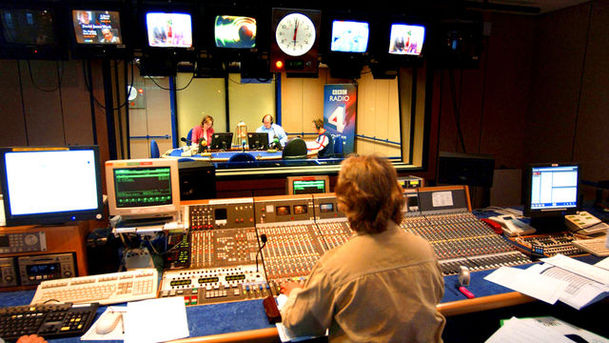Today - 10/11/2009

Presented by Evan Davis and Justin Webb. Barclays bank has announced its financial results for the three months to the end of September. Business presenter Adam Shaw and Hugo Dixon, founder and editor in chief of the financial commentary site BreakingViews.com, examine the results. Conservative leader David Cameron will deliver a speech setting out the Tories' plans to abolish child poverty by the end of the decade. He will criticise the government's welfare system, accusing Labour of 'a moral failure'. Fraser Nelson, editor of The Spectator, examines the history of the party's policy on poverty. The opening up of family courts to journalists has given an insight in to the once-closed world of the family justice system. Reporter Sanchia Berg has been following a High Court case of a father who has been seeking contact with this children for eight years. Judges have supported his requests but his wife has failed to comply with the court order, and so far has not been penalised. The Academy of Medical Sciences has launched a new study to examine the use of animals containing human material in scientific research. They argue that a debate is needed to ensure that research into the understanding of diseases and their treatment can take place in the UK within a robust ethical and regulatory framework. Professor Martin Bobrow, chair of the working group undertaking the study, discusses the ethical implications of implanting human tissue into animals for research. In August Britain took control of the Turks and Caicos Islands following allegations of high-level corruption. Islanders initially welcomed the move, but are now accusing the territory's British governor of behaving like a dictator and are calling for independence. Correspondent Mike Thomson reports from the Turks and Caicos Iiand of Providenciales. The National Gallery is to exhibit its first contemporary art installation. The Hoerengracht, Dutch for Whore's Canal, recreates a sleazy street scene from Amsterdam's red light district. The project was made in the 1980s by artists Ed and Nancy Kienholz. Arts correspondent Rebecca Jones took a look at the controversial installation. Thought for the Day with Dr Indarjit Singh, Director of the Network of Sikh organisations. A new video game being released today is expected to be the fastest-selling video game ever. Call of Duty: Modern Warfare 2 has been described as realistic and violent. Players can join a group of terrorists rampaging through an airport building killing people as they cry for help. James Binns, a computer game publisher, and Marc Cieslak, reporter for BBC technology programme Click, discuss the game's appeal. David Cameron has long accused Labour, and what he describes as 'big government', of failing the poor. Today he will set out his party's policies to combat poverty and reform the welfare system. Mr Cameron will say the government is guilty of a moral failure, creating a welfare system that tells young girls having children before finding work and a loving relationship means a home and cash. Shadow secretary for work and pensions, Theresa May, and eork and pensions secretary Yvette Cooper debate their party's poverty policies. Political editor Nick Robinson comments on the changes to the Conservatives' welfare plans. The Roald Dahl Funny Prize honours books that make young people roar with laughter. One of the judges, the comedian Bill Bailey, discusses the hunt for the country's funniest children's literature. Journalists are no longer banned from reporting the family courts, highlighting workings of a system which has left many fathers disappointed and frustrated. Helen Trotter, barrister from Pump Court Chambers, and Professor Liz Trinder, a family courts expert from Exeter University, examine the effectiveness of family court reporting. Barclays have announced a 4.5 billion-pound net profit for the first nine months on 2009. Chief economics correspondent Hugh Pym reflects on the the bank's results. Vladimir Nabakov's final novel, The Original of Laura, is to be published. Erica Wagner, literary editor of The Times, and novelist John Banville discuss the significance of the book's release. President Obama has attempted to revive the Middle East peace process by meeting Israeli prime minister Benjamin Netanyahu in Washington. President Obama vowed to make peace a priority during his election campaign. Middle East editor Jeremy Bowen reports from Israeli-occupied East Jerusalem on whether or not any progress has been made. How dangerous are Britain's streets? In a speech in August, the shadow home secretary, Christopher Grayling, claimed that 'The Wire used to be just a work of fiction for British viewers. But under this government, in many parts of British cities, The Wire has become a part of real life in this country too. Far too many of those features of what we have always seen as a US phenomenon are now to be found on the streets of Britain as well.'